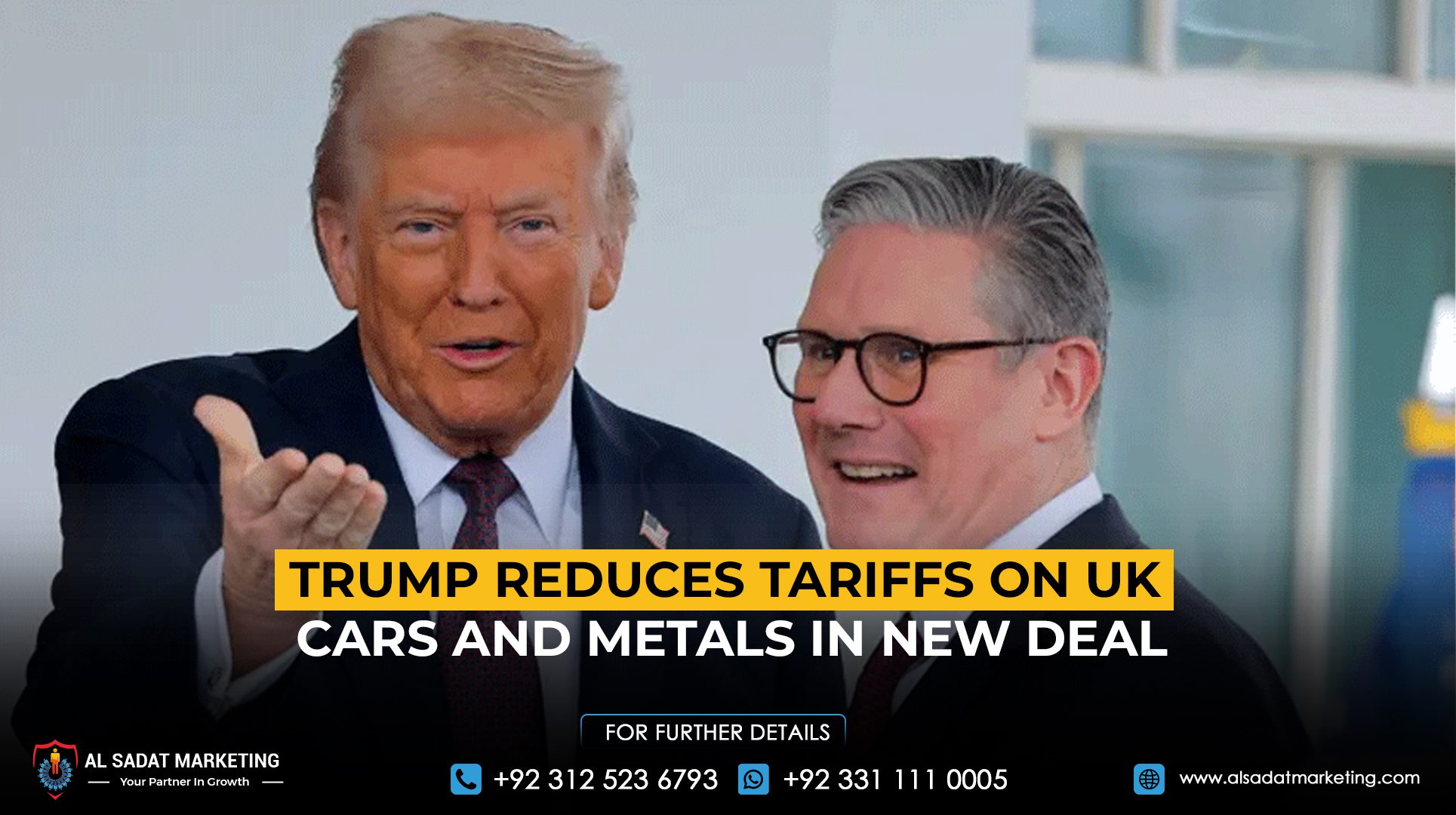In a significant development for transatlantic trade, the United Kingdom and the United States have announced a new trade agreement aimed at reducing some of the tariffs reimposed by President Donald Trump earlier this year. The partial rollback comes as a relief to several key British industries, particularly car manufacturing, steel, and agriculture.
Under the new arrangement, the US will cut its 25 percent import tax on British-made cars to 10 percent for up to 100,000 vehicles annually. This move directly benefits UK luxury automakers such as Jaguar Land Rover and Rolls Royce, who faced steep export costs after last month’s tariff hike. Although the tariff cut is limited by volume, it aligns with current export levels, stabilizing the immediate threat to the UK automotive sector.
Revised quotas for UK steel and aluminium exports to the US have also been introduced, replacing the recent blanket 25 percent tariffs. The system returns to a quota-based structure similar to what existed before the Trump administration’s latest measures, providing British producers with more predictability and market access.
Also Read: Best Local Foods to Try When Visiting Khanpur & Haripur
Agriculture also sees expanded trade, with the US agreeing to allow up to 13,000 metric tonnes of beef into the UK tariff-free each year. This is a major increase from the previous 1,000-tonne cap and eliminates a 20 percent tariff, unlocking new opportunities for American farmers. US officials estimate this change, along with broader agricultural adjustments, will open up $5 billion in exports, including $700 million in ethanol and $250 million in other food goods.
British Prime Minister Sir Keir Starmer praised the deal during a speech at a Jaguar Land Rover facility, calling it a “fantastic platform” for future cooperation and highlighting the protection it provides for thousands of UK jobs. President Trump, meanwhile, defended the limited scope of the agreement, calling it a “great deal” and promising future expansion.
While steel industry representatives and farming groups welcomed the agreement, others voiced skepticism. Critics argue that the deal merely restores conditions that existed weeks ago and fails to address more strategic trade barriers. Business leaders cautioned against overhyping the deal, and political figures like Conservative leader Kemi Badenoch criticized it as one-sided.
Liberal Democrat leader Sir Ed Davey called for parliamentary oversight, while Nigel Farage of Reform UK hailed the agreement as a post-Brexit success story. Nonetheless, unresolved issues remain, particularly concerning pharmaceutical trade and food safety standards. The UK insists it will not compromise on food quality, and details about potential advantages for British pharmaceutical firms remain unclear.
Economists downplayed the broader economic implications of the deal, viewing it as a tactical move rather than a strategic overhaul. According to Oxford Economics, the agreement is unlikely to significantly alter economic forecasts or long-standing trade dynamics.
With major disputes still unresolved and both governments offering only limited transparency, the agreement represents a modest improvement in UK-US trade relations but falls short of a comprehensive free trade deal.










